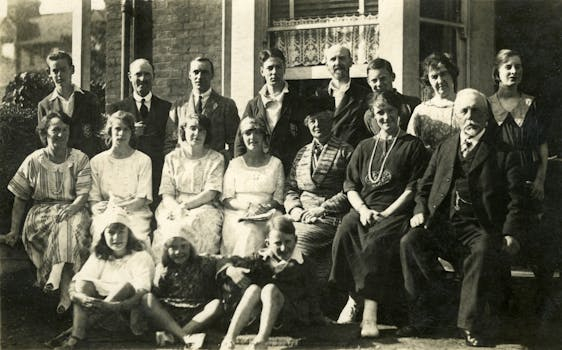Family traditions bridge generational gaps
Family traditions are an integral part of our lives. These are the customs, rituals, and practices that have been passed down from generation to generation within a family. From holiday traditions to family recipes, these traditions bring us together and create a sense of belonging and identity. But more than just providing a sense of belonging, family traditions also play a crucial role in bridging the gap between different generations. In this article, we will explore how family traditions bridge generational gaps and why they are essential in today’s fast-paced world.
The Importance of Family Traditions
Family traditions are not just mere customs; they hold much more profound significance in our lives. They provide a sense of stability and continuity, creating a connection to our past and strengthening the bond between family members. Family traditions also help us create lasting memories and moments that we can cherish for a lifetime.
Moreover, family traditions have a profound impact on our well-being. Studies have shown that families who engage in traditions have a higher level of satisfaction and happiness. These traditions provide a sense of predictability and comfort, especially during difficult times, and can act as a source of support for both children and adults.
Bridge Generational Gaps
In today’s fast-paced world, where technology is constantly evolving, it’s becoming increasingly challenging for different generations to understand and connect with each other. However, family traditions can help bridge this gap by bringing all generations together in a shared experience.
By participating in family traditions, whether it’s sharing stories during a holiday gathering or cooking a family recipe together, older and younger generations can bond over shared experiences. This helps them to understand each other better and bridge any generational gaps that may exist.
Family traditions also provide an opportunity for older generations to pass down their knowledge, wisdom, and values to younger generations. This passing down of traditions from one generation to the next helps keep the family’s history and culture alive and ensures that these values and beliefs are preserved for future generations.
The Role of Family Traditions in Modern Society
In today’s society, where families are becoming more and more diverse and scattered, family traditions are becoming increasingly important. They act as a unifying force, bringing families together and creating a sense of connection and togetherness. This is especially important in our fast-paced, technology-driven world, where families may not have the opportunity to spend as much face-to-face time together.
Additionally, family traditions can help instill a sense of identity, belonging, and values in children. By participating in family traditions, children learn about their family’s history, culture, and beliefs, helping them develop a strong sense of self and understanding of their roots.
In Conclusion
Family traditions may seem simple, but they are an essential part of our lives. They not only provide a sense of connection and belonging, but they also bridge generational gaps and act as a source of support and comfort in our lives. In today’s world, where it can be challenging to find time to connect with family, it’s crucial to hold on to these traditions and pass them on to future generations.
So whether it’s gathering around the dinner table for a family recipe or singing holiday carols together, these traditions are more than just customs – they are the threads that connect us and help us understand each other better. Let’s continue to cherish and preserve these family traditions for the benefit of our families, both now and in the future.










